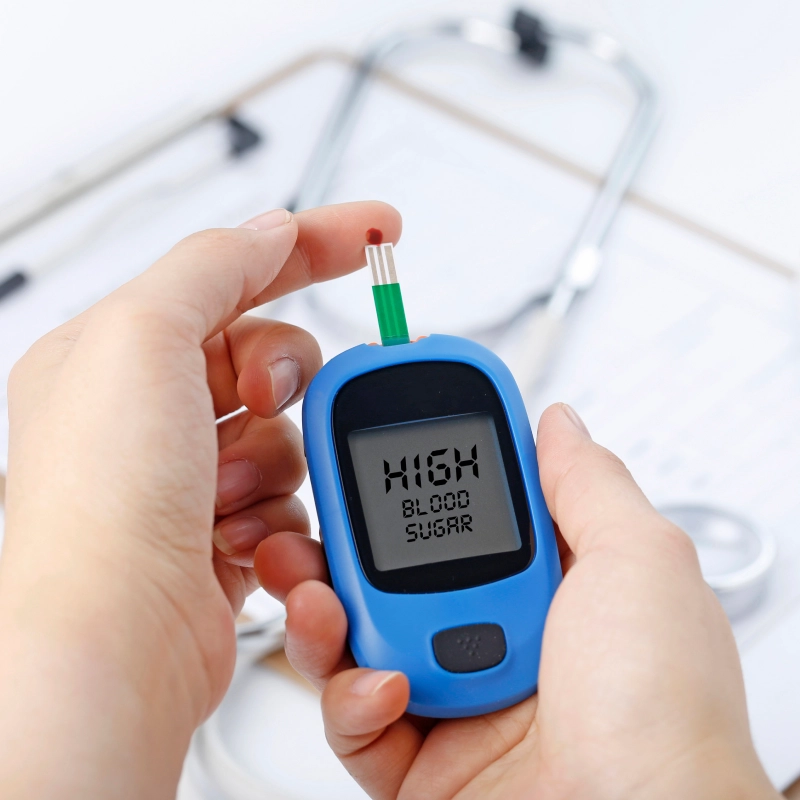
Prediabetes is a condition in which an individual has elevated blood sugar levels, however, it is not high enough to be diagnosed with type 2 diabetes. It is a warning sign that an individual is at an increased risk of developing diabetes in the future. The diagnosis of prediabetes is important because, with early intervention and lifestyle changes, it is possible to prevent or delay the onset of diabetes. You can visit a diabetes hospital in Bangalore to get a blood check-up and receive a proper diagnosis and treatment.
Diagnosis of Prediabetes
Prediabetes can be diagnosed through a blood test, such as the fasting plasma glucose test or the oral glucose tolerance test. The fasting plasma glucose test measures the amount of glucose in the blood after fasting for at least 8 hours. A result of 100-125 mg/dL indicates prediabetes. The oral glucose tolerance test measures the blood sugar level after a person has consumed a sugary drink. A result of 140-199 mg/dL points to prediabetes. The hemoglobin A1C test measures the average blood sugar level over the past two to three months. A result of 5.7-6.4% may indicate prediabetes.
In certain cases, some individuals may have prediabetes and not show any symptoms. It is recommended that individuals with risk factors for diabetes, such as a family history of diabetes, being overweight, or having high blood pressure, get tested for prediabetes.
What are the Risk Factors of Prediabetes?
Doctors report that South Asians are at a higher risk of Prediabetes because of their high-carb, rice-heavy diet. It is no longer a disease of the aged, it is now prevalent in the younger generation as well, hence it is crucial to get routine blood check-ups, especially if you’re overweight. There are several risk factors for prediabetes, including:
- The risk of prediabetes and diabetes increases as an individual ages.
- If an individual's family members have a history of diabetes, the individual is at an increased risk of developing prediabetes.
- Being overweight or obese with little to no activity increases the risk.
- Lack of physical activity and a sedentary lifestyle can increase the risk of prediabetes.
- A diet high in processed and refined foods, added sugars, and unhealthy fats can increase the risk of prediabetes.
- Certain health conditions like hypertension, high cholesterol, fatty liver diseases, and PCOS are also some risk factors for prediabetes.
Treatment of Prediabetes
The good news is that prediabetes is treatable, and lifestyle changes can help prevent the progression of this condition. Some of the lifestyle changes include:
- Eating a balanced diet that is rich in fruits, vegetables, whole grains, and lean proteins while avoiding oily foods, processed foods, and smoking.
- Engaging in regular physical activity, such as walking, cycling, or swimming.
- Maintaining a healthy weight is an important factor in preventing or delaying the onset of diabetes.
- Managing stress through techniques such as meditation, yoga, or exercise.
In some cases, medication may be prescribed to help manage prediabetes. However, lifestyle changes are almost always the first line of treatment.
Diet Recommendations For A Healthier Lifestyle
A healthy diet can help manage blood sugar levels and here are some diet recommendations for individuals with prediabetes:
Emphasize complex carbohydrates: Complex carbohydrates, such as whole grains, legumes, and starchy vegetables, are slowly absorbed by the body and help regulate blood sugar levels. Choose whole grain options, like brown rice, whole wheat roti, and millet, instead of refined grains like white rice and white flour.
Increase fiber intake: Foods high in fiber, like fruits, vegetables, whole grains, and legumes, can help regulate blood sugar levels and improve overall health. Aim to include at least 5 servings of fruits and vegetables in your diet every day.
Limit saturated and trans fats: Foods high in saturated and trans fats, like fried foods and processed snacks, can increase insulin resistance and lead to weight gain. Opt for healthier fats, like those found in nuts, seeds, and fatty fish.
Control portion sizes: Eating large portions of any type of food can contribute to weight gain and elevated blood sugar levels. Pay attention to portion sizes and aim to eat until you are comfortably full.
Avoid added sugars: Foods and drinks high in added sugars, like candy, soft drinks, and sweets, can quickly raise blood sugar levels and contribute to weight gain. Opt for natural sugar sources, like fruit, instead.
Include protein: Eating protein with each meal can help regulate blood sugar levels and control hunger. Include lean protein sources, like chicken, fish, legumes, and dairy products, in your diet.
Spices and herbs: Traditional Indian spices and herbs, like cinnamon, turmeric, and fenugreek, have been shown to have a positive impact on blood sugar levels. Incorporate them into your cooking for flavor and health benefits.
Everyone’s body type is unique and may have different dietary needs. It is recommended to consult with a dietitian or a healthcare provider to develop a personalized meal plan that takes into account individual preferences and medical history.
It is never too late to make positive changes for your health. By adopting a healthy lifestyle, you can reduce your risk of developing serious health problems and enjoy a fulfilling life. If you have concerns about your blood sugar levels or are at risk for prediabetes, you can talk to a diabetes specialist in Bangalore at Sakra World Hospital to create a treatment plan that is right for you.

